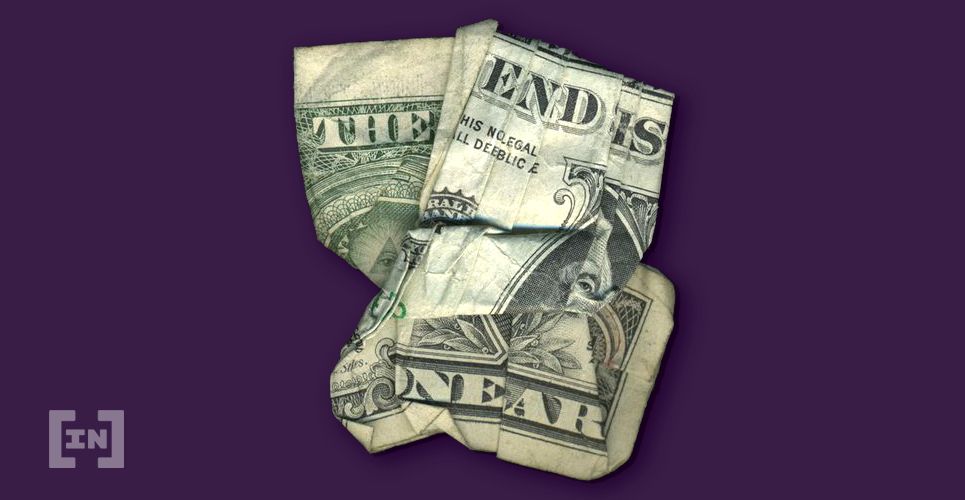In the 20th century, one of the biggest challenges for growing economies was the circulation of national currencies to remote and far-flung regions. This practice has historically incurred significant costs, but cryptocurrencies are helping to speed up the process while making it cheaper.
However, with the invention of the Automated Teller Machine (ATM), cash could be dispensed from many more locations, improving its utility. Throughout the second half of the 20th century, ATMs became increasingly popular, allowing banks to serve their customers unsupervised without compromising security.

Rise and Fall of the ATM
According to a report compiled by the ATM Industry Association (ATMIA), as of 2015, there were just over 3 million ATMs installed worldwide — a number that was projected to reach almost 4 million by the end of 2019. However, since the report was made public, the world economy has gradually been shifting towards becoming a digital-centric cashless society with ATMs becoming less important as time marches on. Eleanor Shaw, professor of entrepreneurship at Strathclyde Business School summarizes the change in her recent opinion piece. Here, Shaw highlights just how quickly the UK has transitioned from a primarily cash-based system to an equally contactless society. According to data from the UK Payment Markets Review from 2018, there is an almost an equal number of people who regularly use cash, as those who do not. Shaw further notes that in 2017, the number of cashless payments increased by 97 percent while direct cash payments fell by 15 percent. This cashless trend doesn’t only apply to individuals either. Almost no businesses are paying their employees in cash anymore, and many retailers and public services no longer accept it. There are even reports of churches and homeless people using cryptocurrencies and contactless payments for donations. However in the race to become a cashless society, the economically backward and poorer classes are getting left behind. The Financial Conduct Authority (FCA) reported that nearly three percent of the UK population remains unbanked, while those in wealthier areas typically have better access to online financial infrastructure.
Cryptocurrencies Steps In
Many experts now believe that Bitcoin and similar cryptocurrencies are a new demographic megatrend that is here to stay. Because of this, the transition from cash to digital payments methods including contactless Visa, Apple Pay, and Google Pay may be short-lived as cryptocurrency alternatives gain prominence. Similarly, with the advent of corporate-backed cryptocurrencies like Facebook’s Libra, it may not be long before retailers and online stores begin to warm to the idea of accepting cryptocurrencies. With a blockchain backbone, cryptocurrencies like Bitcoin and Libra may be capable of serving billions of people worldwide, providing access to critical financial infrastructure wherever it is needed. Because of this, there is a good reason to believe that the banks themselves may be going the same way as cash — becoming increasingly less relevant while cryptocurrencies grow in both utility and public acceptance. Do you think cryptocurrencies are the next logical progression of a cashless society? Let’s hear your thoughts in the comments below!Disclaimer
In adherence to the Trust Project guidelines, BeInCrypto is committed to unbiased, transparent reporting. This news article aims to provide accurate, timely information. However, readers are advised to verify facts independently and consult with a professional before making any decisions based on this content. Please note that our Terms and Conditions, Privacy Policy, and Disclaimers have been updated.

Daniel Phillips
After obtaining a Masters degree in Regenerative Medicine, Daniel pivoted to the frontier field of blockchain technology, where he began to absorb anything and everything he could on the subject. Daniel has been bullish on Bitcoin since before it was cool, and continues to be so despite any evidence to the contrary. Nowadays, Daniel works in the blockchain space full time, as both a copywriter and blockchain marketer.
After obtaining a Masters degree in Regenerative Medicine, Daniel pivoted to the frontier field of blockchain technology, where he began to absorb anything and everything he could on the subject. Daniel has been bullish on Bitcoin since before it was cool, and continues to be so despite any evidence to the contrary. Nowadays, Daniel works in the blockchain space full time, as both a copywriter and blockchain marketer.
READ FULL BIO
Sponsored
Sponsored
